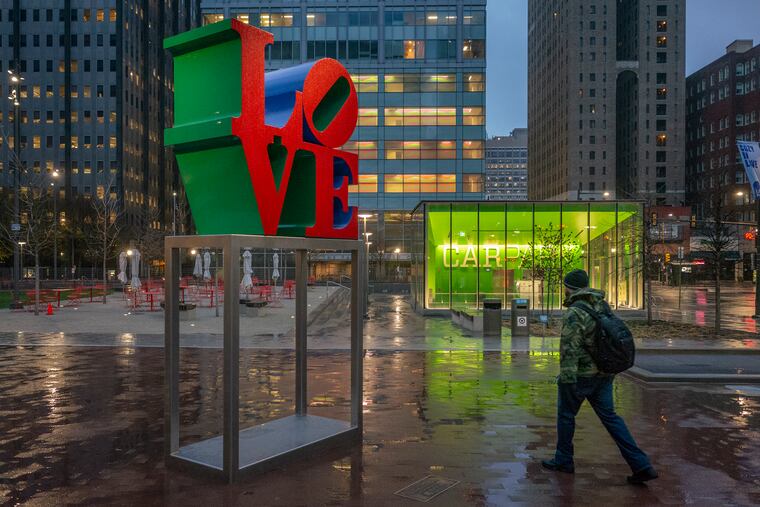Philadelphia needs to do more to save black lives, including better coronavirus testing | Solomon Jones
Please stop telling me that black people are doing this to ourselves.

City records currently show that African Americans account for 52% of Philadelphians who have died from the novel coronavirus.
Philadelphia is not unique. In cities across the country, black communities are being ravaged by the virus. The question is why.
Some politicians and pundits place the blame for high black mortality rates on the shoulders of black folks, claiming we’re not adequately embracing social distancing, or else vulnerable because of our health habits. Perhaps that’s part of it. But nobody blamed the white kids who contracted the virus after they partied on Florida beaches in the midst of the outbreak.
So please stop telling me that black people are doing this to ourselves.
In reality, the story of black folks and the coronavirus started hundreds of years ago with systemic racism, medical bias, and lack of access to health care. That story continues in a system where testing for the coronavirus is limited. The rules skew toward those with more resources, fewer preexisting conditions, and ready access to primary care physicians.
In the words of Bernie Sanders, the system is rigged.
» READ MORE: Black men can’t wear face masks and not expect negative reactions | Jenice Armstrong
“The first thing is because you don’t have enough tests, you have to create a tier system of who should get tested first,” surgeon Ala Stanford told me. Typically, that means prioritizing those at high risk for worse outcomes, including the elderly, health-care workers, and people with preexisting conditions. The scarcity of tests creates a situation in which some people who need to be tested ultimately aren’t.
But somehow, those with more money have managed. Epidemiologist Usama Bilal of Drexel University’s Dornsife School of Public Health reviewed city data and found that Philadelphians living in higher-income communities have gotten tested for the coronavirus six times more often than those in lower-income neighborhoods.
African Americans are not often the lucky ones.
“For the majority of testing sites, you have to be in a car,” Stanford said when I asked about barriers facing black patients who seek tests. “People were taking buses to get out to testing stations, only to be turned away because they weren’t in a car. … Another [barrier] is that you needed a referral from your primary care doctor to get tested. So you show up at a site with a prescription to get tested, but your doctor is from Jefferson and you show up at Einstein. They might tell you that your doctor is not in our system, so you can’t get tested here.”
» READ MORE: How does Philadelphia’s coronavirus outbreak compare with other big cities?
That’s if you even have a doctor. Many in Philadelphia’s poorer black neighborhoods don’t have primary care physicians. In fact, a 2016 study by researchers from the University of Pennsylvania found that black neighborhoods in Philadelphia were 28 times more likely than white neighborhoods to be “low-access,” with fewer primary care doctors per resident.
So in Philly, if you’re black, you’re less likely to have a doctor, less likely to get a doctor’s note, and less likely to get tested for the coronavirus.
Then let’s say a black person seeking a test somehow makes it to a testing site. The outcome often turns out negative.
“I come all this way to get tested, and you turn me away because I’m not in a car,” Stanford said — or “because I don’t have a referral. You turn me away because I have a referral, but I’m at a location that doesn’t accept a referral from my doctor. You turn me away because I’m not quite 50. You turn me away because I’m not quite 65. I’m 62.”
I asked Philadelphia’s Health Department if the city has a strategy to deal with the disparities affecting African Americans. I got this response in a statement: “The Health Department has made an extra effort to ensure that ‘stay at home’ messages are heard by African-Americans through many channels. And the Health Department has been working to address racial disparities in health in all of its other programs. Here in Philadelphia we have been working on decreasing these disparities through a combination of policy, systems, and environmental strategies.”
That’s fine, but black folks are still dying. Stanford, along with three other doctors from the Black Doctors COVID-19 Consortium, will take to the streets in a van this week and test anyone who registers at realconciergemedicine.com.
The only requirement to get tested is that you have symptoms, or you have been exposed to someone who is known or presumed to have been positive within the last 14 days.
That’s a start. Hopefully it’s enough to save black lives.